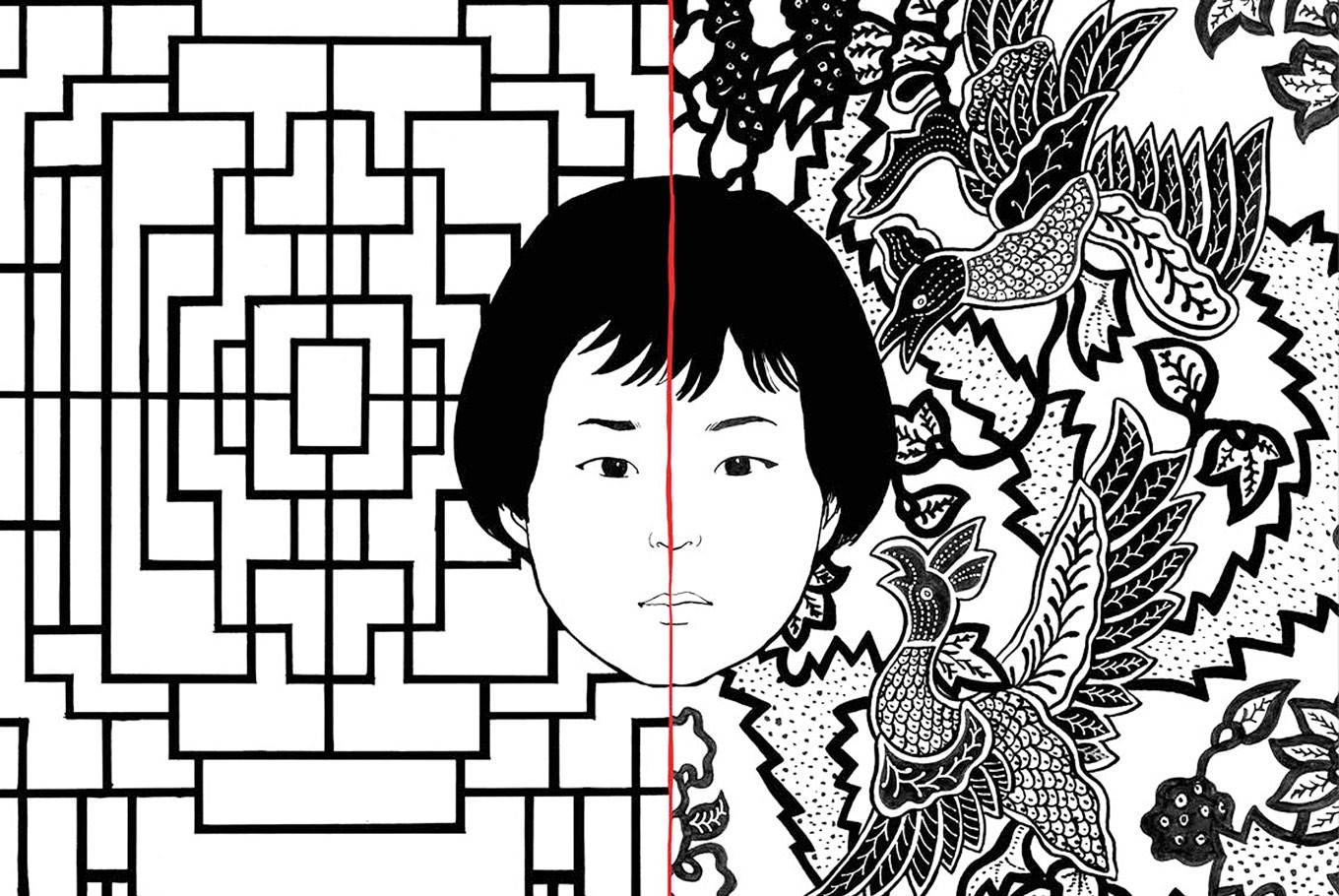'Chinese Whispers': In search of identity in tragedy, history
While Chinese Whispers is primarily an account of Rani’s childhood in the days leading up to the riots, it also discusses the political and social context of the racial tensions, which had started during Dutch occupation.
Change Size
 Dark moments: Scars from the racially tinged unrest are presented in Chinese Whispers, an online graphic novel by Rani Pramesti and illustrated by Cindy Saja. (Rani P Collaborations/File)
Dark moments: Scars from the racially tinged unrest are presented in Chinese Whispers, an online graphic novel by Rani Pramesti and illustrated by Cindy Saja. (Rani P Collaborations/File)
A
ll nations have rich histories, memorialized in museum pieces and remembered by many. Indonesia is no exception, with its days gone by the subject of many celebrations and remembrances. But it is not without its dark moments.
The month of May marks the 20th anniversary of the 1998 riots that shook Indonesia to its very core and culminated in the resignation of then-president Soeharto and the ushering in of a new age of democracy.
The scars from the racially tinged unrest were made manifest in Chinese Whispers, an online graphic novel by Rani Pramesti, a Jakarta-born ethnic Chinese artist who moved to Australia a year after the riots, and illustrated by Cindy Saja.
The six-chapter novel uses a combination of illustrations, animation and audio to create a moving 35-minute presentation, touching on diverse issues, from identity, race relations and violence against women.
One of the most poignant scenes was when 12-year-old Rani came home from school, looking sullen.
She asked her mother, “Mom, are we Chinese?”
Her mother replied, “No, we are Indonesians.”
While Chinese Whispers is primarily an account of Rani’s childhood in the days leading up to the riots, it also discusses the political and social context of the racial tensions, which had started during Dutch occupation.
The title brings to mind a popular children’s game played across schoolyards, but according to Rani, it also refers to the ethnic Chinese diaspora’s tendency to speak of the riots in near-whisper quietness.
“When I did my research for the project, I interviewed a number of people in Melbourne. We talked about many things, from their experiences to their favorite food. However, when the subject turned to May of 1998, their voices would drop to a whisper, even though it happened years ago and we were not even in Indonesia,” Rani recalled.
In total, Rani recorded 16 hours of conversation between her and various figures, including journalist and writer Dewi Anggraeni, human rights activist Karlina Supelli and members of the ethnic Chinese community in Melbourne.
Chinese Whispers, which is available by visiting thechinesewhispers.com, began its life as an art installation, winning two awards at the Melbourne Fringe Festival in 2014. The installation consisted of a maze made of cloth, with visitors traversing the maze while accompanied by a recorded narration.
However, Rani felt the format limited the number of people who could experience the piece. “I worked hard for two years to complete the installation, and only around 300 people could fully experience it in that format. This made me frustrated because I believe that Chinese Whispers carries an important message.”
Following the installation, she turned to technology to spread her whispers. To reach a wider audience, Rani chose a digital format to allow millions of mobile phone users in Indonesia to experience the graphic novel, despite the sometimes spotty internet connection.
Indeed, the content-heavy presentation proved to be a challenge for those lacking a high-speed internet connection. What’s more, the mobile-oriented website meant that Chinese Whispers could not be loaded on a computer.
However, poor Wi-Fi should not deter readers from digesting the novel’s message that “we cannot heal what we will not face”.
Its tagline seems to suggest that its readers should reflect on their own conscience, to examine their own complicity in shaping Indonesia’s current sociopolitical climate.
Such a loaded message can prove to be controversial, given the recent events surrounding identity in politics. However, Rani said she had anticipated a backlash from people who might be offended by her work.
“My job as an artist is to tell a story with integrity. I cannot control anything outside of that, but I hope that even if there is a personal attack directed at me or our team, it could become a catalyst for dialogue.”
“On one side, everyone is entitled to their own opinion. On the other hand, violence is never tolerable. No one should be violated or made to feel unsafe if you somehow disagree with them.”
As the National Commission on Violence against Women (Komnas Perempuan) chairwoman Azriana said during the novel’s launch: “If we do not make peace and remain in denial about what happened, healing will not come easy for us.” (jlm)









